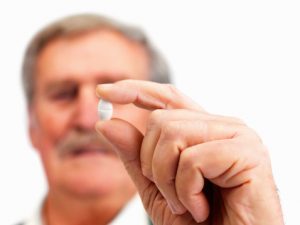
When it comes to sex, our hearts tend to be involved, metaphorically speaking, as we are often in love with the person we express our sexual selves to. But our hearts play a much bigger role in sex than just how we feel for our partner. In order for sex to be successful, we need a strong heart to pump blood to our body parts so that they can function properly. With low blood supply, on the other hand, our parts just don’t work the way they should.
For the millions of individuals living with heart disease, this means they may also encounter some level of sexual dysfunction at some point. Talking about such intimate matters to their doctors may become embarrassing, and so patients accept their fate in order to treat their heart. But a new study is looking to open up the conversation between heart disease patients and health-care professionals with regards to sexual dysfunction.
Treatment of cardiovascular disease (CVD) results in sexual dysfunction
A Deakin University study has aimed to break the silence between patients and doctors with regards to talking about sex, as it could be an important discussion to have when trying to determine matters of the heart. Senior lecturer Dr. Leah East said, “Sexual health is often seen as a taboo topic by healthcare professionals and patients alike, so many people are suffering in silence. To help break the silence on sexual health, I am conducting a study to develop a sexual health and wellbeing tool aimed at opening up the conversation between patient and healthcare professional.”
Cardiovascular disease is any condition that affects the heart and blood vessels. It has been found that many medications aimed to support a strong heart can come with a slew of side effects, including a low libido. Dr. East added, “Being treated for cardiovascular disease should not come at the expense of an active and fulfilling sex life.”
“Research tells us that patients want and welcome information and care associated with their sexual health and wellbeing. However, these needs are often not met. Providing health professionals with a screening tool would enable routine screening to identify possible problems and assist in providing appropriate sexual health care.”
In order to improve the current conversation, researchers from Deakin University are looking for participants over the age of 18 diagnosed with cardiovascular disease to be interviewed in order to develop strategies to improve treatment and sexual dysfunction.
The researchers hope that by speaking with patients and heath professionals, they can come up with strategies for cardiovascular patients to be more open with their doctors and achieve better sexual function.